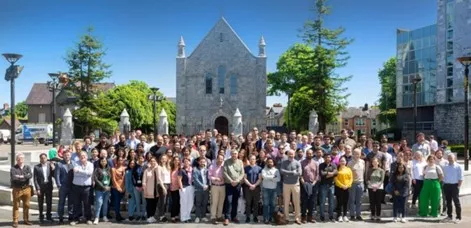

Life as a PhD student
Being a PhD student in physics, I am frequently asked what I find most fascinating. Since I believe that the field of physics is still incomplete this is what fascinates me the most. The big questions like “What is reality?”, “How does it operate?”, and “Why should we care?” remain unanswered. For me, quantum mechanics is one of the most fascinating and remarkable branches of science, responsible for extraordinary phenomena such as quantum tunnelling and quantum entanglement.
My typical day begins with a 15-minute nature stroll to the campus at about 9 am. As a first-year PhD student, I spend a few early morning hours reading literature. My PhD research is focused on utilizing plasmonic nanocavities to improve the photon emission properties of quantum emitters. So, at our lab, we are researching materials and structures that can serve as the foundation for quantum communication. This will be faster and more secure than existing approaches – such technologies are ultimately un-hackable because they are founded on the laws of quantum mechanics. These technologies enable communication using single light particles, or photons, and are secure because if a single photon is interfered with the properties of the particle will have changed. We work with materials that only emit a single photon at a time. Although producing single light particles is challenging, quantum dots (which we synthesize in our lab) are one of the possible bright single photon sources. They are not yet effective enough to make them useful in the context of quantum information-based technology. Therefore, it is necessary to increase their emission efficiency, which can be accomplished by integrating them into photonics and plasmatic cavities. This is the main goal of my research project.
During the early days of my PhD, I got the opportunity to present my work at a few events and got to know some of Ireland's top photonics researchers, which stoked my interest in the subject even more. In addition to research, we are responsible for helping undergraduate students as a teaching assistant during the academic year, which has greatly enhanced my ability to teach.
Life at graduate school is much more unstructured than it was when I was an undergraduate, where I would be taking a few classes and a lab. Although it has been a difficult adjustment, I think that in the long term it will benefit me significantly as a researcher. To maintain a healthy work-life balance, I dedicate an hour session for physical activity at least five days a week which helps relieve stress after a long day in the labs. During the summer period, the go-to weekend activity is to plan some hiking or trip across the country to explore nature, which is a great way get recharged before the week ahead. To conclude I would say life as a PhD student is challenging, but highly interesting.

With team IPIC at the Tyndall National Institute, University College Cork